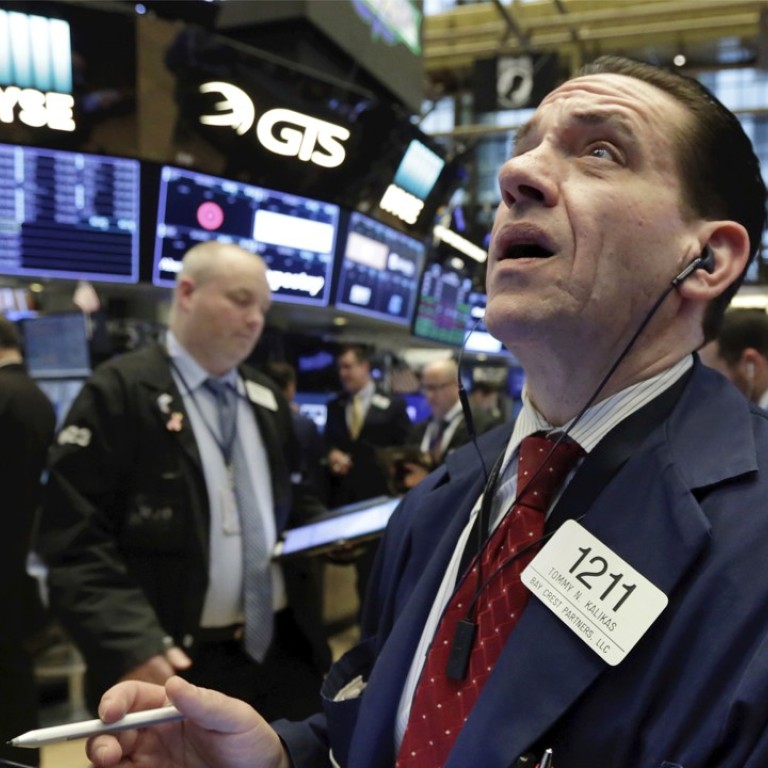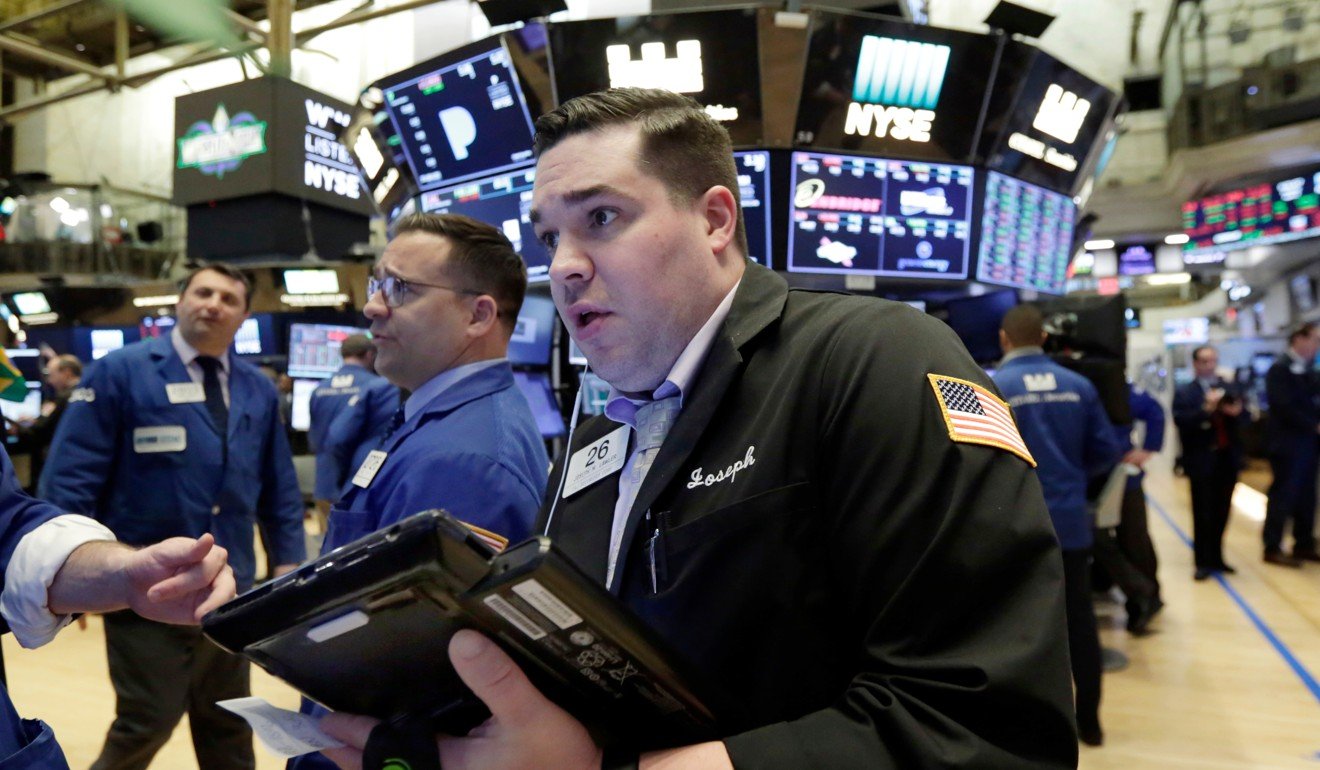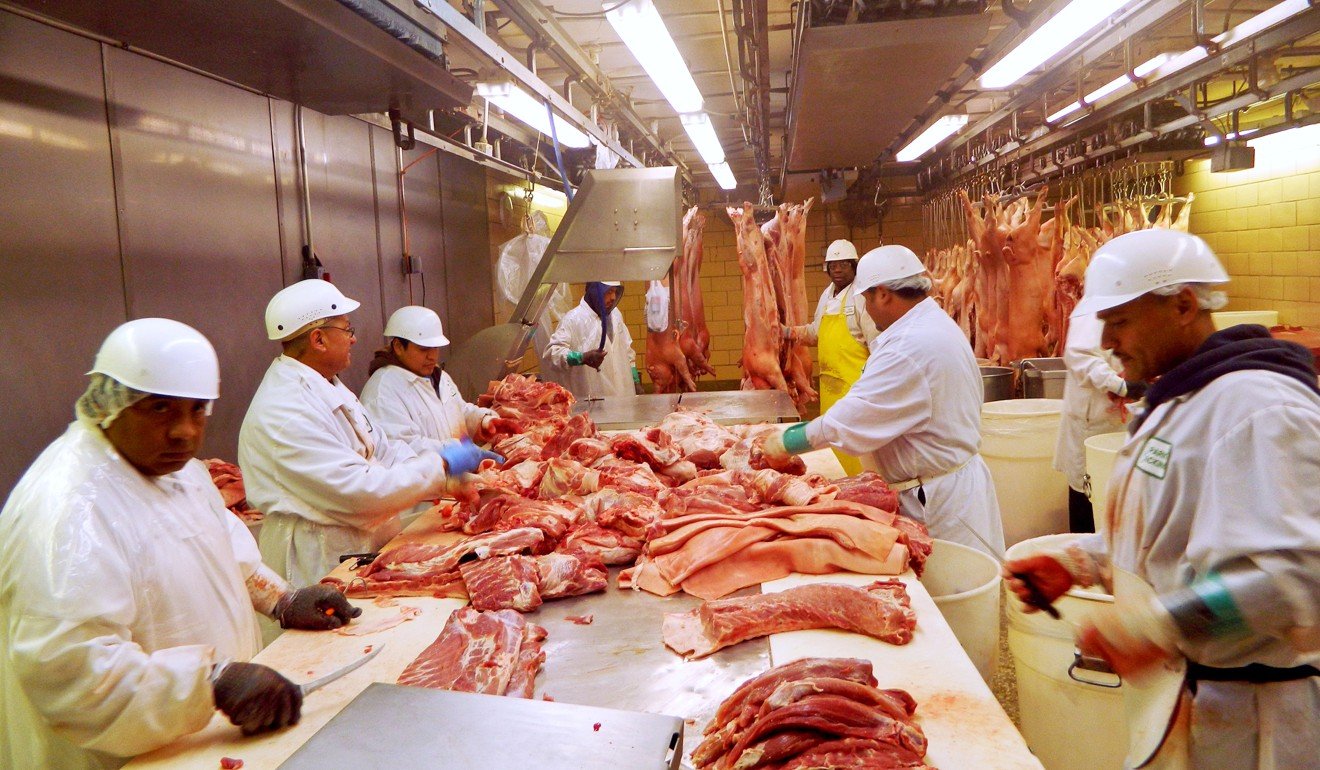
US stock markets tumble as China retaliates for Trump tariffs
Stocks fell after Beijing hit back against Donald Trump’s imposition of tariffs on Chinese steel and aluminium, assessing duties on 128 imported American products
The opening salvoes of a tariff spat between the US and China that some observers fear could escalate into a full-blown trade war sent jitters through Wall Street on Monday.
Stock markets fell after Beijing hit back against US President Donald Trump’s imposition of tariffs on Chinese steel and aluminium with retaliatory duties on 128 imported American products, including pork and apples.
The Dow Jones Industrial Average dropped 758 points on Monday in intraday trading, momentarily setting a new low for the year, before closing down 458.92 points for the session, at 23,644.19.
Tyson Foods dropped more than 6 per cent Monday, one of the biggest losses on the market.
Investors also dumped some recent favourites, including retailers like Amazon and technology companies like Microsoft.

The S&P 500 fell 58.99 points, or 2.2 per cent, to 2,581.88.
The Nasdaq gave up 193.33 points, or 2.7 per cent, to 6,870.12.
China said on Sunday it would institute retaliatory tariffs of up to 25 per cent on US$3 billion in food imports from the US, raising the possibility of a trade war between the two countries.
China’s stocks slip amid sell-off in traditional sectors
China’s ministry of commerce said it would be “suspending tariff concessions” on 128 US food products.
Fresh and dried fruits, almonds, pistachios and wine would be subject to an additional 15 per cent tariff. Eight other items, including frozen pork, would be subject to a 25 per cent tariff.
The tariffs would begin on Monday, the ministry said, and are in line with a list of potential duties on US products released two weeks ago in response to Trump’s tariffs on steel and aluminium.

Trump has also promised to levy 25 per cent on US$60 billion in annual imports from China.
The Beijing ministry said that “a large number of people expressed their support” for the measures to “safeguard the interests of the country and its industry”.
It added that China and the US should resolve issues through negotiation and dialogue. “As the world’s two largest economies, cooperation is the only correct option.”
An editorial in China’s Global Times newspaper warned that America could “say goodbye to the delusion” that China would not retaliate against Trump’s tariffs on aluminium and steel.
“Even though China and the US have not publicly said they are in a trade war, the sparks of such a war have already started to fly”, the newspaper said.
Global powerhouse status distant dream for top Chinese brokerages
But analysts say the fact that China’s tariffs do not cover some of the US’s biggest exports to China, such as soybeans, is a sign Beijing wants to avoid an all-out trade war.
“The amount subject to tariff is not big, which shows China is willing to ease the intensity of the trade conflict that was started by the US,” said Shi Yinhong, director of the US research centre at Renmin University in Beijing.
“Trump gave us a heavy shot, and China is giving a light shot back.”

China’s economic tsar Liu He spoke with US Treasury Secretary Steve Mnuchin last week over the phone.
Mnuchin is reportedly considering a trip to China to continue talks.
Still, some in China are calling for stronger retaliatory measures on soybeans and other agricultural products as well as big-ticket US goods such as Boeing aircraft.
China, the third largest consumer of US pork, bought US$1.1 billion in pork products from the US last year, according to the US Meat Export Federation.
US senator Elizabeth Warren said on a three-day visit to China that US policy towards China up to now has been “misdirected” and she was not afraid of tariffs.
“We told ourselves a happy face story that never fit with the facts,” she said on Sunday in Beijing.
“Now US policymakers are starting to look more aggressively at pushing China to open up the markets without demanding a hostage price of access to US technology.”
With US-China ties at a low, analysts say the countries are likely to keep struggling over trade.
“Even if this conflict can be eased, it won’t last long”, said Shi. “There will be rounds after rounds of trade wars in the future.”


